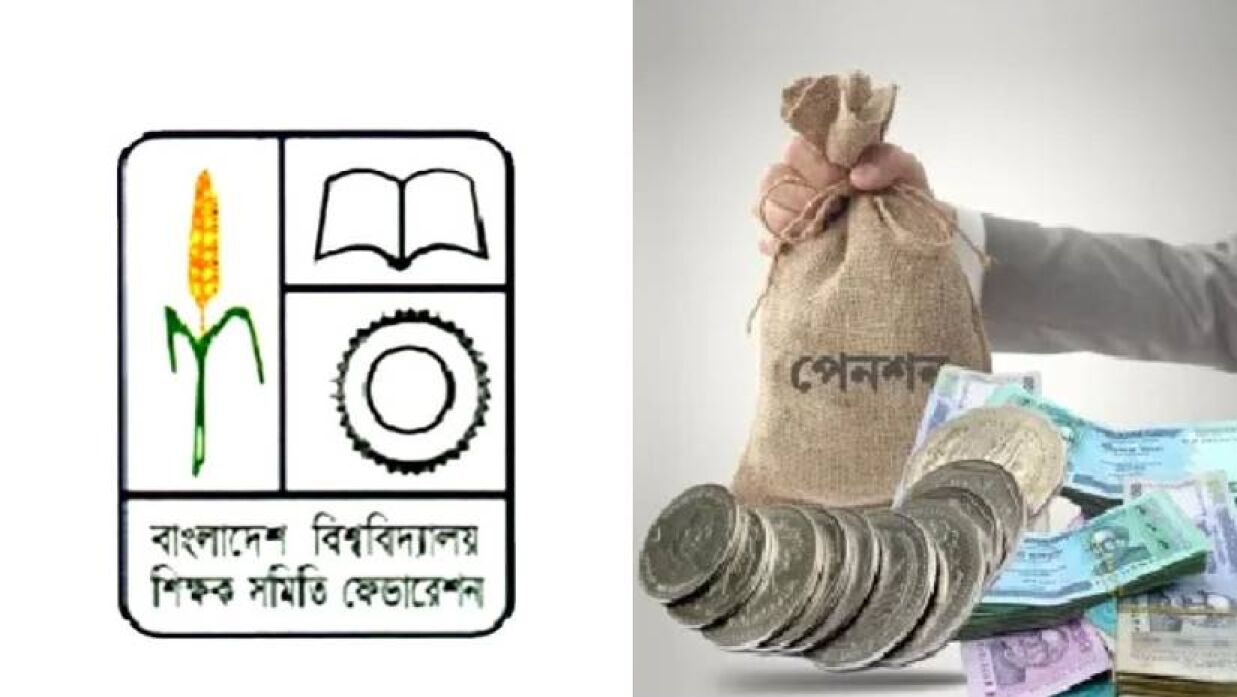Teachers at public universities in the country remain firm in their demand for the withdrawal of the circular issued regarding inclusion in the ‘Pratoy Scheme’ of the Universal Pension. They argue that the new scheme reduces their benefits.
Despite issuing statements, holding press conferences, and organizing human chains for the past two months, the government has not taken any action. Although teachers have met the Education Minister informally, no positive decision has come from the government.
Starting next week, teachers will observe a strike at all public universities. It is reported that exams will be exempt from the strike. However, if their demands are not met, an indefinite comprehensive strike, including suspension of classes and exams, will begin on July 1.
From the beginning of next month, classes and exams are expected to be suspended, creating a deadlock at over fifty higher education institutions in the country. After the long summer and Eid holidays, students returning to campuses are anxious about the uncertainty of classes and exams.
The National Pension Authority introduced the new Pratoy Scheme in August last year. On March 13, the Ministry of Finance issued two separate notifications outlining the framework of the scheme. On March 20, detailed information about the scheme was provided through a press release by the Ministry of Finance.
The Federation of Bangladesh Teachers Association has declared various programs in protest, focusing on three main demands:
- Withdrawal of the discriminatory circular regarding the Pratoy Scheme issued by the Ministry of Finance on March 13.
- Inclusion of university teachers in the super grade.
- Introduction of a separate pay scale for teachers.
None of these demands have been met by the government so far, leading the Teachers Association Federation to continue their movement.
Despite peaceful protest programs such as issuing statements, collecting mass signatures, holding human chains, submitting memorandums, and staging sit-in programs, the government has not taken any effective steps. The standoff between the two sides is causing a stalemate.
Teachers claim that if the proposed Pratoy Scheme is implemented, current students who aspire to join the noble profession of university teaching in the future will suffer. The ongoing movement aims to protect the interests of the younger generation and to counter what they see as a conspiracy to destroy the higher education system.
On June 4, the Federation of Bangladesh Teachers Association called a half-day strike at all public universities. After the half-day strike, leaders of the federation gave the government a deadline until June 24 to respond.
According to the announcement, teachers will observe a half-day strike on June 25, 26, and 27. Additionally, they will observe a full-day strike on June 30. Exams will remain exempt from the strike. If their demands are not met, a comprehensive strike will commence from July 1 at all public universities in the country.
Meanwhile, classes for new students at Dhaka University are scheduled to begin on July 1. Semester-based universities are also set to start new semester classes. The announcement of a comprehensive strike has left students worried. Sheikh Sadi Simon, a fourth-year student of AF Rahman Hall at Dhaka University, told The Daily Campus that suspending classes and exams at the beginning of a new academic year is not a good sign. He mentioned the difficulties students face in getting tickets after the Eid holidays and expressed concerns about the uncertainty for both old and new students.
On June 4, after the half-day strike at Dhaka University’s Arts Building, the general secretary of the Teachers Association, Professor Dr. Zeenat Huda, announced that no academic or administrative activities would take place from July 1 if the demands are not met. She reiterated this stance in a recent interview with The Daily Campus, stating that excluding universities from the Pratoy Scheme would solve the problem, but the government has not yet engaged in any discussions. She emphasized that their existing pension scheme was sufficient and that the imposed scheme is discriminatory.
She pointed out that pensions are meant to provide security and that reducing benefits instead of increasing them is unacceptable. The Pratoy Scheme not only limits pensions but also reduces the retirement age from 65 to 60, cutting off benefits from all sides. Therefore, the movement will continue.
When asked about the latest status of the movement and discussions with the government, Professor Dr. Zeenat Huda said that no positive steps have been taken by the government. The Federation remains steadfast in their movement, and if the demands are not met, all academic and administrative activities will cease from July 1.
The General Secretary of the Federation, Professor Dr. Nizamul Haque Bhuiyan, stated that they have not backed down from their movement. They have a meeting with teachers on June 22 to discuss the implementation of their programs. He hopes the government will consider their demands, and the movement will continue until the demands are met, with a comprehensive strike starting from July 1.
- Pixel Tap Daily Combo: Pixelverse In-game Rewards - September 6, 2024
- Gemz Daily Combo Rewards: Earn Extra Coins Daily - September 5, 2024
- Red Magic 9S Pro: A Powerful Gaming Phone with 6500mAh Battery and 24GB RAM - July 4, 2024
